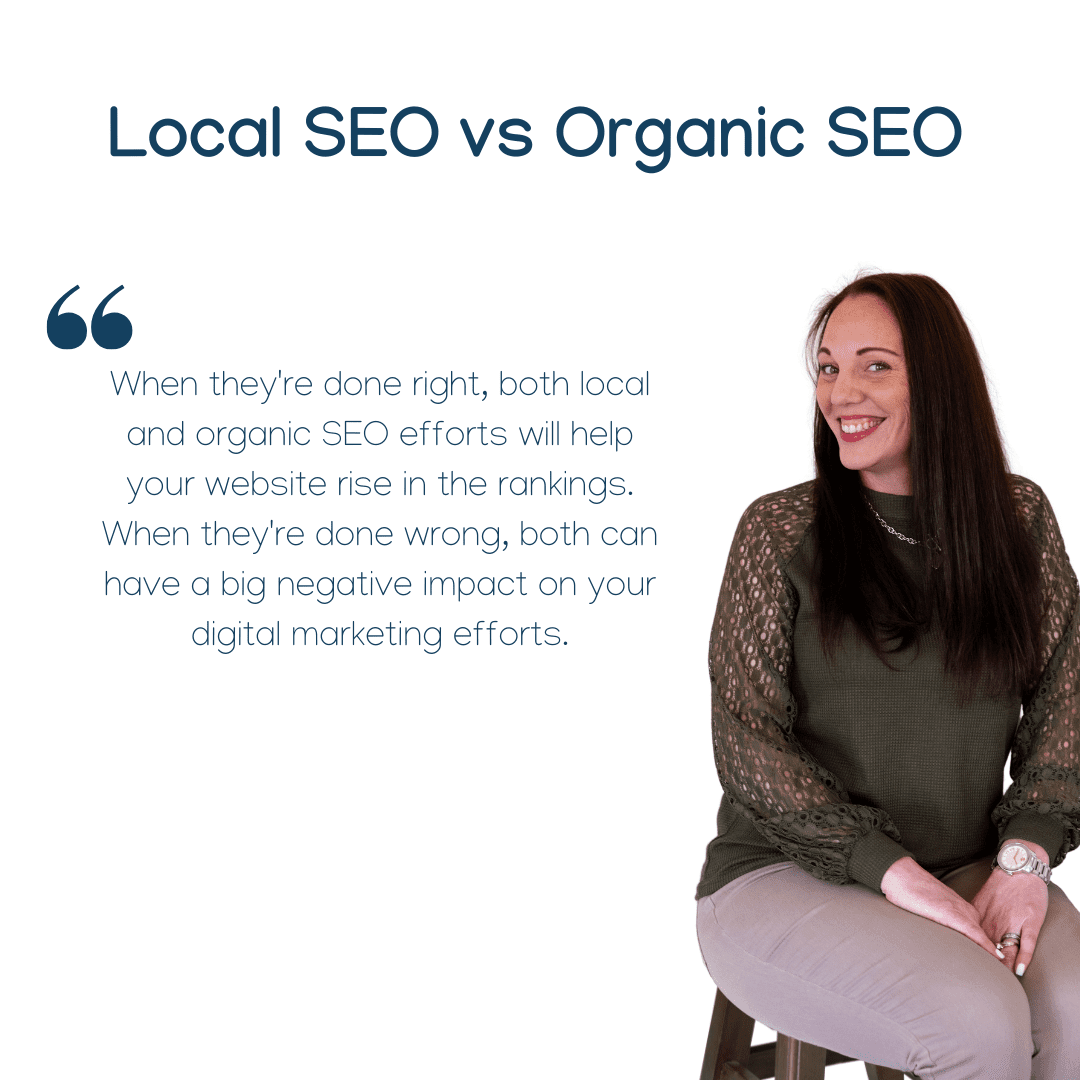Local SEO vs Organic SEO: What’s The Difference Between Them?
If you are in the digital marketing industry, you must have come across a decision between local SEO vs organic SEO. The main differences between local search engine optimization (or local SEO) and organic SEO are that local SEO focuses on getting your business to rank in a specific geographic location while organic SEO focuses on getting your website to rank well organically across all locations.
Before we dive in, let’s check what local SEO and organic SEO are all about?
Local SEO
Local SEO or local search engine optimization is about optimizing your site for local customers only. It can be done by using some techniques like keywords density, keyword research, etc.
Local SEO strategies have their own set of benefits as compared to other types of SEO. These include:
- Better rankings for local searches and improved local business
- Increased footfall of local audience
- Build trust among your potential customers
- Cheaper than social media ads or PPC
Trust signals from local listing

Organic SEO
On the contrary, organic SEO is one of the most popular ways of ranking websites. This method is used when you want to get high rankings for any type of search queries e.g. “best”, “free”, “online store” etc.
The major benefit of organic SEO is that it allows users to find relevant content without having to filter through pages full of ads. Also, there is no limit to how many times users can click on links before they reach your website.
Benefits of Organic SEO:
- Improves the relevance of your website’s traffic
- Increase your authority and authenticity via content and blog post
- Paid search (e.g. Google Adwords) is more expensive and less effective than organic search
- The performance of SEO activities can easily be measured, which makes them scalable
Local SEO Vs Organic SEO: The Difference
-
Keyword Density
Keywords play an important role in both local SEO and organic SEO. However, their importance varies depending on whether you are targeting a local audience or not. For example, if you are targeting a local audience then you should use more keywords than if you are targeting a global audience.
Keyword research plays a vital role in both local SEO & organic SEO. In fact, it is one of the first things which needs to be considered when planning out your strategy. Understand the user searches and then plot your keyword strategy
-
Relevancy
Relevant content is the key to success in both local SEO and online SEO. If your content isn’t relevant, people won’t stay around long enough to read it. And if your content doesn’t attract visitors, they will simply leave.
In addition to this, you need to consider the relevancy of your content from different perspectives i.e. user experience, search engines, and readers’ expectations.
-
Location
In the case of local SEO, you need to make sure that your website is optimized for a particular geographical area. If you don’t do so, then you will not be able to provide your services to people living in that region. So, it is very essential to know where your potential clients live.
In contrast, with organic SEO, you are free to choose whatever city or state you want to rank for. You just need to ensure that your website is optimized enough to compete with others who are already ranking for those cities.
-
Trust
Trust is another aspect that is very important in local SEO. If someone is searching for a service provider in his/her locality, he/she would naturally look up reviews and recommendations from friends and family. This is because he/she wants to avoid getting ripped off.
However, since he/she cannot physically check what kind of business is being run by each of these providers, he/she relies heavily upon reviews and testimonials to determine whether he/she should hire a certain company or not.
This is why trust becomes extremely important in local SEO. Good reviews and positive testimonials help build credibility and increase your chances of being chosen over other companies.
Off-page SEO: Organic SEO vs Local SEO
Off-page SEO refers to the actions taken outside your website. They help improve your online reputation and enhance your chances of being found by Google. Some of these off-page activities include social media marketing, press releases, article writing, blog commenting, forum posting, etc.
Organic SEO relies mostly on backlinks whereas local SEO is all about citation. Local citation consists of listing your business within other sites like Yellow Pages, Bing Maps, Yelp, City Search, etc. Local SEO also consists of optimizing Google Business Profile for a more local audience.
Backlinks for organic SEO consist of linking out to other authoritative websites while backlinks for local SEO consist of physical addresses and phone numbers, street names, directions, etc.
Content: Local SEO vs Organic SEO
Local SEO is engaged with information that is geographically specific. This may contain the city, town, state or area in which your company is located, the nation, postal or zip code, streets, and junctions.
Local content engages a local audience and signals to search engines your regional concentration.
Organic SEO is focused on material that is organized into subject categories and the group of keywords that exist naturally in that topic’s content.
Let’s say, if your firm is a moving company, you’ll want to include content about service areas, the benefits of moving with you. However, you should also consider adding extra safer moves, discounts for veterans and other USPs
Now you know the difference between SEO and local SEO let’s jump on to how local SEO and organic SEO affect each other.
Local SEO vs Organic SEO: The Impact On Each Other

If you look at a bigger picture both local SEO and organic are the same. You just need to optimize your website as per the search engine requirements.
When they’re done right, both local and organic SEO efforts will help your website rise in the rankings. When they’re done wrong, both can have a big negative impact on your digital marketing efforts.
When you think about search engine optimization (SEO), remember that it is also what helps people find your business. SEO is important, but it’s important to think about the people who might be looking for your business when they do a search for it.
SEO isn’t enough. You should also make sure that Google can see what you’re up to. Make sure people can find all the information they need about your business, such as where it is, how long it is open, what it does, and more.
Want more information on SEO Best Practices?
We are now offering 3 ways to stay in the know-how of SEO for your business.
1. Join Our FREE Group SEO for Business
2. Take our 30 Days to Unlock Your SEO Mini-Course
3. Get ongoing monthly support in your SEO Journey from an expert. Monthly Calls, Monthly Newsletter, Q&A, and much more with SEO Lifeline Membership

Recent Comments